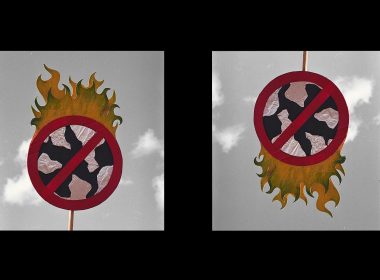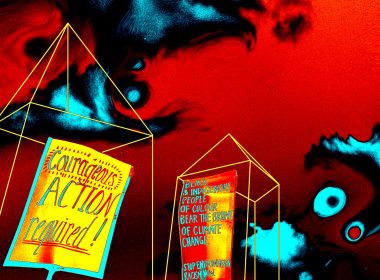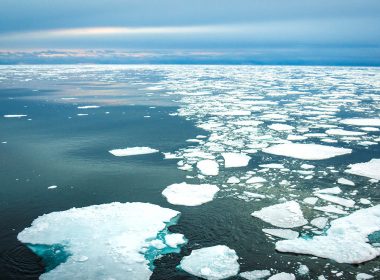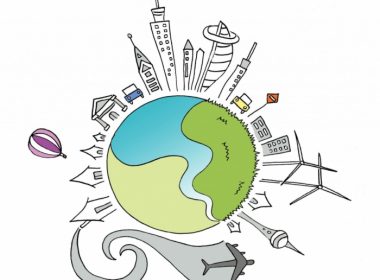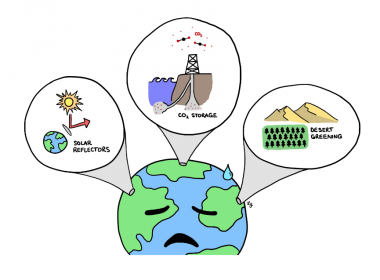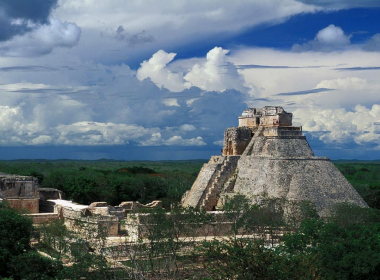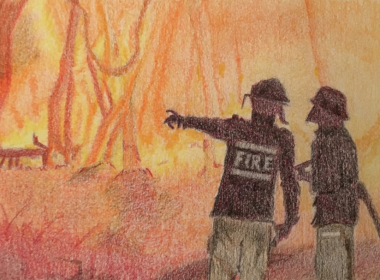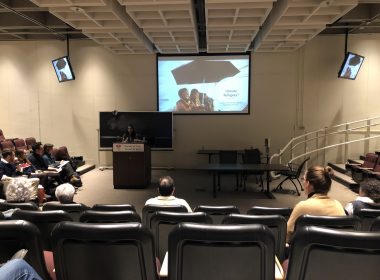The Divest Canada Coalition, a consortium of climate action groups at 19 Canadian universities, penned an open letter in September 2020 calling on universities across the country to divest from fossil fuels. The coalition’s demands centre on divestment, but also address related issues such as the violation of Indigenous sovereignty,[Read More…]
Tag: climate change
Academic panel presents perspectives on environmental racism in Canada
While recent demonstrations such as BLM marches, the Scholar Strike, and environmental protection protests call for a racial reckoning, many scholars have been prompted to explore the link between environmental degradation and racial injustice. On Sept. 24, McGill’s Research and Sustainability Network (RSN) hosted a panel of academics to discuss[Read More…]
The changing nature of sea ice
Over the last few decades, climate change has profoundly changed the shape and movement of the layer of sea ice covering the Arctic Ocean. As a result of a warming climate, melting sea ice has become more mobile. A new study conducted by McGill’s Department of Atmospheric and Oceanic Science[Read More…]
Modelling climate action on the response to COVID-19
Some scholars, politicians, and activists believe that the climate crisis merits the same kind of national and international response that COVID-19 is receiving, but others think that would be impossible. While climate change and COVID-19 are fundamentally different problems, they both pose massive threats to human well-being and require enormous[Read More…]
Geoengineering is a band-aid solution to the climate crisis
The conversation around geoengineering, otherwise known as climate intervention or climate engineering, is gaining traction as climate projections remain dire. Offering many salient yet controversial ways to mitigate Earth’s rising temperatures, geoengineering methods include spraying sulphate particulates into the atmosphere to block out solar radiation, fertilizing the ocean with iron[Read More…]
Combatting climate change with concrete actions
It is clear that climate change—or, more appropriately, the climate crisis—is a defining issue of this century. However, it is not yet clear what the solutions to this human-made crisis are. Carbicrete, a company founded by McGill alumni Chris Stern (BEng ‘94) and Mehrdad Mahoutian (Ph.D 2014), is undertaking the[Read More…]
Soil carbon levels still recovering from Mayan deforestation
Approximately 4,000 years ago, in modern-day southern Mexico and Central America, the Mayan civilization arose and, in due time, spread. Over thousands of years, the Mayans developed a highly sophisticated urban society, numbering 19 million people at its peak. The Mayans built and thrived in dense, teeming metropolises, erecting giant[Read More…]
The Australian wildfire anomaly
Every year, patches of Australian forests are consumed by fire, an ecologically necessary process that releases soil nutrients and stimulates plant growth. When the fire season is exacerbated by drought and high temperature, however, the devastation is so great that some citizens are forced to flee their homes. In the[Read More…]
ILADA hosts talk on effects of climate change on Indigenous refugees
The Indigenous Law Association de Droit Autochtone (ILADA) hosted a forum to examine how climate change affects Indigenous refugees in a legal context. On Jan. 15, keynote speaker Me Karina Kesserwan presented the talk to law students and other members of the McGill community. ILADA is a student group that[Read More…]
Climate justice is racial justice
“The future is hotter than my imaginary boyfriend.” “Clean up: It’s our future, not uranus.” “Why go to school if we don’t have a future?” The clever and creative signs featured at the Montreal Climate Strike focussed on protecting ‘our future.’ Even the #FridaysForFuture movement, started by Swedish activist Greta[Read More…]
